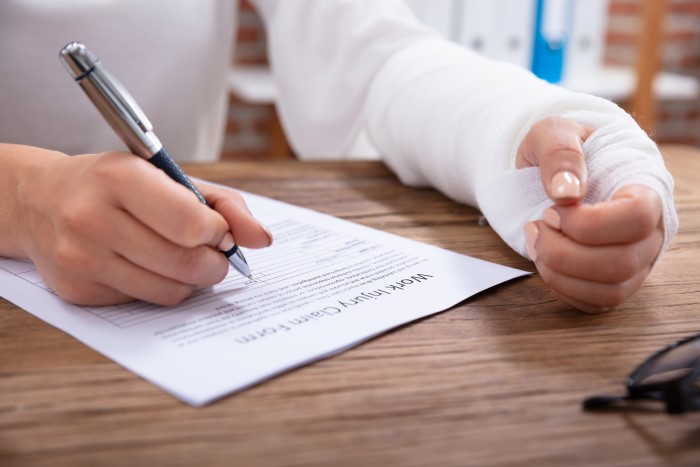
Suing Someone for Loss of Enjoyment of Life: Fight for What You Lost
Accidents can lead to injuries that completely change your ability to live your life the way you want. Injuries that restrict your ability to work, relate to others, have relationships, or engage in leisure activities can all affect your ability to enjoy life. In many states, this is considered a compensable loss, which means you can sue someone for the loss of enjoyment of life.
What Is Loss of Enjoyment of Life?
Personal injury attorneys classify losses into two categories: economic losses and non-economic losses:
- Economic losses. These losses include quantifiable amounts like your medical bills, missed pay when you cannot work, and repairs to your personal property.
- Non-economic losses. Non-economic losses include losses that cannot immediately be quantified. These may include future earning ability, pain and suffering, loss of consortium, and loss of enjoyment of life.
It can be difficult to quantify how much your non-economic losses are worth.
How Loss of Enjoyment of Life Manifests Day-to-Day
Some lasting injuries may not interfere with your ability to continue living life as you want to live it. For instance, a scar on your arm from a car accident may be small and is unlikely to interfere with how you feel about yourself, and how you perform daily activities.
But imagine a car accident which leaves you with permanent disfigurement, like the loss of a body part, or burn injuries that leave severe scarring across your face or neck. Injuries like these can have far-reaching effects and implications. Serious injuries can lead to:
- Vision or hearing loss
- Memory loss
- Brain damage
- Loss of motor skills
- Loss of communication skills
- Personality changes
- Loss of partner intimacy
- Loss of fertility
- Anxiety and/or depression
Many people with severe injuries are unable to work or drive, or even care for themselves. They may need help with basic hygiene, mobility, and communication. They may be unable to participate in activities they once enjoyed. For some, this loss may be long-term or even permanent.
Your level of loss of enjoyment will be different from anyone else’s. The extent to which you are restricted from living your life like you did before your accident may determine how much enjoyment of life you truly lost.
Injuries That Can Lead to Loss of Enjoyment of Life
Many injuries can lead to loss of enjoyment of life. These include but are not limited to:
- Traumatic brain injuries (TBIs)
- Loss of sight
- Partial and/or total paralysis
- Spinal cord injuries
- Burns
- Facial disfigurement and scarring
- Loss of limb
- Nerve damage
- Chronic pain
- Loss of speech
- Loss of hearing
- Organ damage
- Severe joint injuries
These injuries often require medical care and invasive treatments, and have the potential for lengthy rehabilitation. In some cases, a person may need full-time care if they can no longer care for themselves. Along with these injuries comes the potential for psychological distress. Depression, anxiety, and mental anguish are common when someone experiences a severe accident that changes their life. Dealing with a serious physical injury and the psychological effects of the injury can compound the overall loss and result in the loss of enjoyment of life.
How to Prove Loss of Enjoyment of Life
To prove loss of enjoyment of life, you must be able to prove that the activities you once enjoyed before your accident are no longer available to you and that your life has changed so dramatically that it is harder and less enjoyable for you to live. A person can prove this through:
- Medical records. The records of your injuries, treatments, medications, and therapies are all beneficial in proving the severity and extent of your injuries.
- Witness testimony. The testimony of friends, loved, ones, coworkers, and expert witnesses like psychiatrists and therapists can help establish personality changes, loss of interest or abilities, and changes in your interpersonal relationships.
- Photographs, CCTV footage, traffic cam footage, and police reports. Footage and photographs of your accident and/or the accident scene can be used to establish liability which will be needed to file a claim for loss of enjoyment.
When attempting to sue another party for loss of enjoyment of life, be prepared to undergo psychological analysis with medical professionals. You may be required to undergo examinations and to discuss your accident, your feelings about the accident, and how you feel about your life. These may be difficult discussions, but they will be necessary to help you prove that you have experienced a reduction in your enjoyment of life.
How to Calculate Damages for Loss of Value of Life
Assigning a monetary amount for non-economic damages can be difficult. Many factors influence how much of an impact an injury has on your quality of life. Some injuries may only change your ability to enjoy life for a short time while others may lead to permanent changes. The calculation should consider:
- The severity of your injury. Permanent injuries cause permanent changes to your life. Compensation should reflect this fact.
- The physical impact of your injury. Some injuries result in physical limitations that are long-lasting. A broken bone, for instance, may cause you to miss out on sports for a few months, but once the bone heals you may return to your favorite activities. An injury that causes you to lose your vision will impact you for the remainder of your lifetime.
- Emotional impact. The emotional and psychological toll of a physical injury can reduce a person’s enjoyment of life leaving them depressed, anxious, or hopeless.
- How your injury impacts your personal relationships and favorite hobbies. The relationships you have and the hobbies you enjoy can make life worth living. If your injury has taken these from you, your quality of life will be dramatically reduced.
When calculating loss of enjoyment, be prepared to talk about how a monetary figure can correlate to the changes you’ve experienced in your life. It may seem overwhelming to put a dollar amount on this type of loss, but it will be necessary in helping you receive compensation.
Why You Should Seek Legal Counsel for Help Claiming Loss of Value of Life
It can be difficult to monetize your non-economic damages. You should seek the advice of an experienced personal injury attorney to help you identify all your losses and understand how much you can collect. Non-economic losses are frequently downplayed by insurance companies who don’t want to pay a fair settlement.
Using every tactic they can, they may attempt to convince a person that their loss of enjoyment is non-important and non-compensable. Hiring an attorney can help. An attorney can help you avoid accepting lowball settlement claims and connect you to financial experts who can address your non-economic losses and help with valuation.
If you’ve experienced a significant change in how you live your life and are experiencing emotional and psychological distress due to an injury, contacting an experienced attorney may be the key to getting the compensation you deserve.



